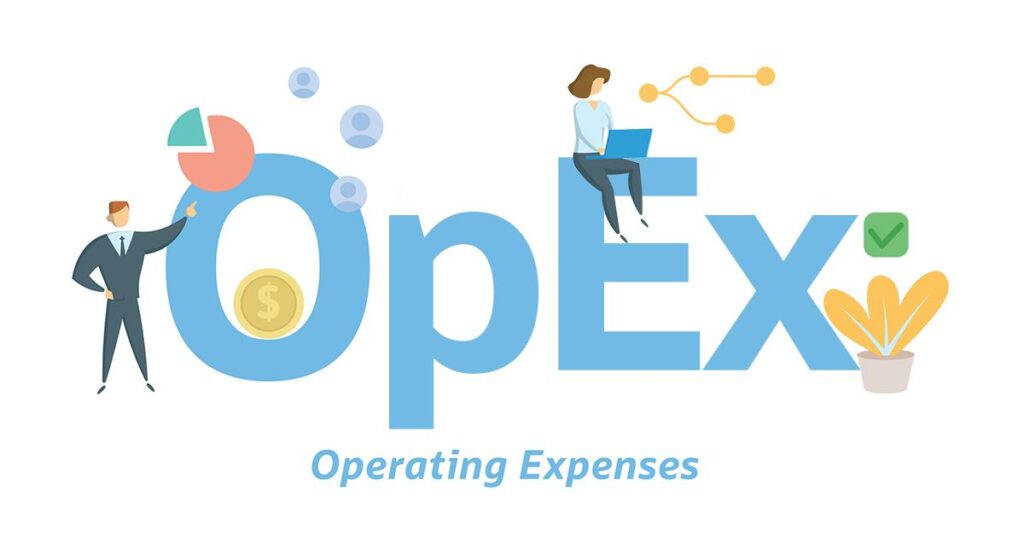Cloud Business Models – For business individuals, after all, most of them already know the phrases CapEx (Capital Expenditure) and OpEx (Operational Expenditure). On this event we’ll talk about the variations between Capex and Opex for the Cloud Business Models. Earlier than that, let us take a look at the next dialogue.
The Ultimate Guide to Managing Cloud Data
Capex (Capital Expenditure)

Capital Expenditure are prices incurred in operating a business to purchase items or companies on a big scale that increase the corporate’s means to extend profitability. These prices are prices incurred by the corporate to create income sooner or later. In different phrases, Capital Expenditure is spending on mounted belongings designed to extend the worth of belongings and increase the corporate’s means to extend income.
Opex (Operational Expenditure)

Whereas Opex is the continued prices incurred by the corporate to run its business. These prices are bills incurred by the corporate to fulfill its operational wants. In different phrases, Opex is the associated fee incurred by the corporate to keep up the continuity of its belongings and be certain that the actions deliberate by the corporate go properly.
CapEx and OpEx For Cloud Business Models
Capex and Opex are two essential monetary metrics within the cloud business models. Capex refers back to the prices an organization incurs to amass, improve, or keep bodily belongings corresponding to property, gear, or know-how. Inside the business models, this contains investments in infrastructure, corresponding to knowledge facilities, servers, and community gear. These investments normally have a long-term affect on the corporate and are thought of capital investments.
Opex, however, refers back to the day-to-day bills an organization incurs in operating its operations. In such a business models, this may embody prices corresponding to salaries, utilities, advertising prices and cloud service charges. These prices are thought of working prices as a result of they’re incurred repeatedly and are essential to hold the business operating.
One of many major variations between Capex and Opex is the best way they’re handled from an accounting and finance perspective. Capex is recorded as an asset within the steadiness sheet and depreciated every so often, whereas Opex is acknowledged as an expense within the earnings assertion within the interval by which it’s incurred.
Cloud Data Migration: A Step-by-Step Guide
One other distinction is that Capex requires important up-front funding, whereas Opex is extra versatile and might be elevated or decreased as wanted to accommodate adjustments in business operations. This makes the cloud business models engaging to many firms, because it permits them to cut back upfront funding and make the most of the scalability and suppleness of cloud companies.
Within the cloud business models, the distinction between Capex and Opex is essential as a result of it impacts an organization’s monetary efficiency and money move. Capex normally requires a big up-front funding, which might be difficult for some firms to handle. Then again, Opex prices are extra predictable and might be managed extra simply as a result of they’re issued frequently. Because of this firms can keep away from massive up-front investments and select to pay for cloud companies as they’re used, which might help save money and keep monetary stability.
Cloud Data Recovery: How to Bounce Back from Disasters
As well as, this business models permits firms to keep away from prices related to managing their very own infrastructure, corresponding to {hardware} upkeep, software program upgrades and energy consumption. These charges are normally included within the Opex price and are borne by the cloud service supplier. This may result in decrease general prices and a extra predictable price construction for an organization, which might help enhance its monetary efficiency.
One other benefit of the cloud business models is that it permits firms to be extra agile and attentive to altering market circumstances. With the flexibility to improve or downgrade their cloud companies as wanted, firms can shortly reply to altering calls for and modify their spending accordingly. This may improve effectivity and a extra aggressive business models.
Conclusion
The conclusion is that the distinction between Capex and Opex is a vital side of the cloud business models. By selecting to pay for cloud companies on an operational foundation, business can profit from decrease up-front investments, and higher predictability of prices. These advantages might help enhance an organization’s monetary efficiency and competitiveness.
In some circumstances, an organization’s items or belongings that ideally represent capex might be categorised as an opex, that’s, when an organization chooses to lease items or belongings somewhat than purchase them. For instance like, as an alternative of constructing your personal knowledge heart. It could be a good selection for firms that are likely to have restricted money move and wish to cut back their general bills over the 12 months. Capital expenditures might be fairly massive and dangerous investments. This funding should be made after contemplating many elements, particularly its worth within the subsequent few years.

Very interesting details you have mentioned, thanks for putting up..
hey there and thank you for your info – I’ve definitely picked up anything
new from right here. I did however expertise several technical issues using this web site, since I experienced
to reload the website lots of times previous to I could get it to load properly.
I had been wondering if your hosting is OK? Not that I am complaining,
but slow loading instances times will very frequently affect your placement in google and could damage your quality score if
ads and marketing with Adwords. Well I am adding this RSS to my email and could look
out for a lot more of your respective fascinating content.
Ensure that you update this again soon.. Lista escape roomów